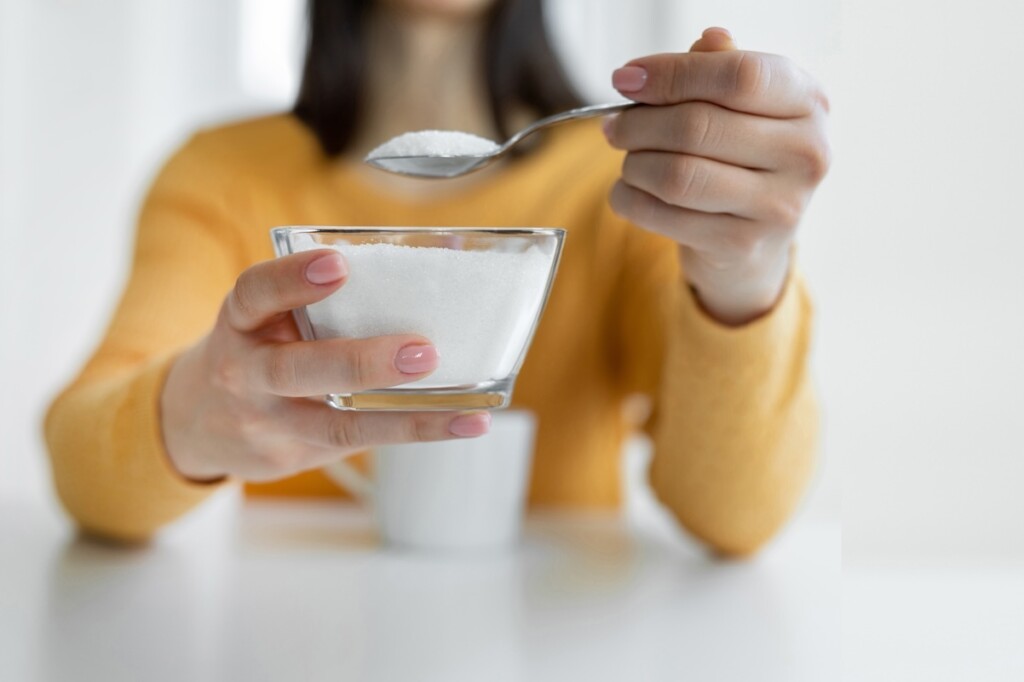How Sweet It Is
Sugar is tasty, tempting— and potential trouble. A Monmouth dietitian explains when to tell yourself “no.”

Here come the holidays, the season of piled-high dessert tables, when temptation is all around us. Sugary treats abound at parties and in celebratory breakfasts, lunches and dinners, while scrumptious goodie or candy trays may sit out all day, calling to us. The American Heart Association says Americans eat two to three times the recommended amount of sugar in a year, and this season surely accounts for more than its share.
So first, the cautionary news. “A high consumption of sugar through sweets and sugar-sweetened beverages makes it easy to overconsume our daily caloric needs, which can often cause unexpected weight gain,” says Annie Zappulla, a registered dietitian nutritionist and owner of A to Z Wellness Solutions in Sea Girt. “High-sugar diets have also been associated with an increased risk of heart disease and type two diabetes. Excess sugar intake can lead to high blood pressure, high triglycerides and high blood sugar,” Zappulla adds, last but certainly not least, “Consuming too much sugar can also lead to tooth decay.”
Must we turn, then, into monastic self-deniers, constantly shaking our heads from side to side until Valentine’s Day with its chocolates is safely behind us? Not quite. “No one food can define a person’s health. For overall health, we are looking at a balance of all nutrients,” says Zappulla. “Being conscious of your sugar intake is a healthy habit, but if restricting yourself around it causes other poor habits such as binge eating, that is not healthy either. All foods can fit into a healthful, nourishing diet.”
A key distinction: The danger here is in added sugar. There are naturally occurring sugars in everything from fruit to dairy to complex carbohydrates. As Zappulla says, “Sugar is a carbohydrate source. All carbohydrates break down in our body as sugar, which gives us our body’s preferred energy source— that’s glucose. There are a variety of carbohydrate sources outside of added white sugar that we can get energy from. We want adequate carbohydrates in our diet, but we want them from balanced sources.”
So what’s the best way to manage your sweet tooth? MONMOUTH asked our diet expert five questions:
Will swapping out sugar for natural sweeteners help? A Google search for “healthy dessert recipes” brings up thousands of hits for treats that replace white sugar with something like agave, honey or maple syrup. Alas, says Zappulla, all of these sweet options “have the same calorie and sugar content per serving. It is still best practice to be conscious of your overall sugar consumption no matter the source.”
What these natural sweeteners can do, however, is give you some nutritional benefit where white sugar has none. Zappulla explains, “For example, honey has other health benefits like antioxidants, as well as antibacterial and anti-inflammatory properties.”
Are artificial sweeteners the solution? Sugar substitutes taste sweet, but don’t contain sugar. They have fewer calories, and some have no calories at all. Are they the solution to our sweet-tooth woes? “Artificial sweeteners are not recommended as a long-term option,” says Zappulla, “but they are a short-term option to begin reducing your sugar intake overall.”
Long-term studies on the health effects of artificial sweeteners are ongoing, and have been inconclusive as of yet. “There is some evidence that artificial sweeteners may still affect blood sugar even with the low calorie and sugar content. Some experts believe that these sweeteners can change a person’s gut bacteria, which affects overall health,” says Zappulla. “Natural low-calorie sweeteners like Stevia and monk fruit [instead of low-calorie sweeteners made in a lab, such as aspartame] would be a healthier alternative. Still, these low-calorie sweeteners may cause bloating for those with digestive issues.”
There are also more immediate concerns. Explains our expert: “Due to these sweeteners being low calorie, our body can often feel tricked into thinking it is getting real sugar when it isn’t. This can lead to more sugar cravings and hunger throughout the day.”
Zappulla once again stresses that the research on these artificial sweeteners causing more serious health risks, such as type-two diabetes, is ongoing, limited and conflicting. The Food and Drug Administration (FDA) classifies all of them as safe, though it also lists a recommended amount that a person should stick to a day. That recommended amount is different for each sweetener, and can be found on the FDA’s website. For instance, the recommended daily intake of aspartame, the sweetener in many diet sodas, is 50 mg/kg of body weight per day.
• Can sugar get you hooked? “When we eat sugar, our brain releases a hormone called dopamine,” says Zappulla. “Dopamine is a neurotransmitter that is in charge of our ‘reward system.’ When a behavior releases dopamine, it makes us feel good, which can encourage us to repeat this behavior. If we don’t have alternative feel-good practices, it can be easy to rely on food to make us feel good.”
This reliance explains sugar’s “addictive” reputation, though it’s not addictive by the conventional, diagnostic use of the word. “We want to consider what someone’s diet and relationship with food looks like,” adds Zappulla.
What are the danger signs that you’re consuming too much sugar? Keep an eye out, Zappulla advises, for headaches, mood changes, energy crashes, strong sugar cravings, unintended weight gain, joint pain or abnormal blood work. All can be signs that you are consuming too much sugar. “The American Heart Association recommends nine teaspoons for men and six teaspoons for women a day,” she says.
So what’s the plan for the holidays? Above all, Zappulla stresses the importance of awareness and moderation when regulating your daily sugar intake. Make sure you know when you are consuming large amounts of sugar. Zappulla cites “sweetened beverages” in particular as items in which people may consume excessive sugar without realizing it.
If you feel yourself getting a sugar craving, Zappulla suggests finding lower-sugar alternatives so you don’t feel totally deprived. “Choosing fruit, flavored Greek yogurt or dark chocolate are great alterations,” she says. “The more whole foods we can add to our diet, the less likely added sugar can be snuck in.”

